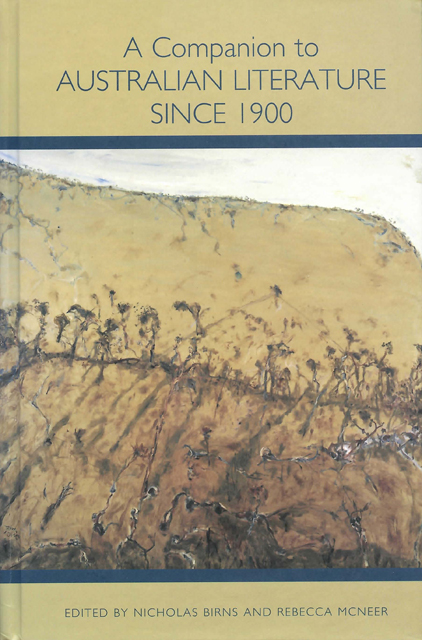Book contents
- Frontmatter
- Dedication
- Contents
- Chronology of Main Events in Australian History, 1901–2005
- Acknowledgments
- Note on the Cover Illustration and Artist
- Introduction
- Part 1 Identities
- Part 2 Writing Across Time
- Part 3 International Reputations
- Part 4 Writers and Regions
- Part 5 Beyond the Canon
- Notes on the Contributors
- Index
14 - Christina Stead
Published online by Cambridge University Press: 10 March 2023
- Frontmatter
- Dedication
- Contents
- Chronology of Main Events in Australian History, 1901–2005
- Acknowledgments
- Note on the Cover Illustration and Artist
- Introduction
- Part 1 Identities
- Part 2 Writing Across Time
- Part 3 International Reputations
- Part 4 Writers and Regions
- Part 5 Beyond the Canon
- Notes on the Contributors
- Index
Summary
O, Australian, have you just come from the harbour? Is your ship in the roadstead? Men of what nation put you down — for I am sure you did not get here on foot?
— Stead, For Love AloneIn 1965, The Tide Began to turn for expatriate Australian writer Christina Stead (1902–83). That year, through the efforts of supporters, Stead’s 1940 novel The Man Who Loved Children was reissued. The book speaks with a double tongue, its 1930s American settings carefully grafted over the painful tissue of a pre-First World War Sydney childhood. The result was a rich, multi-layered narrative — a Künstlerroman, a satire of New Deal liberal ideologies and Oedipal drama. Though well reviewed when first published, the novel had by 1965 fallen out of circulation. With an influential introduction by Randall Jarrell, the reissue garnered international attention for Stead after a period in which her readership, ever fractured, had reached its nadir. From 1928 to 1937 Stead lived in the UK and Europe with her eventual husband, Bill Blake, moving thence to the US until the end of the war (see Rowley for biographical details). Blake, an American of Jewish background (formerly Wilhelm Blech), was a financial consultant, Marxist, and writer whose networks included businessmen, communists, and members of the left intelligentsia. Returning in 1946 to Europe and the UK as the Cold War deepened, Stead experienced difficulty publishing her books, a problem compounded by her itinerancy and frequent changes of publisher. The 1965 reissue of The Man Who Loved Children, however, shone new light on her achievement, stimulating publication of her remaining work and, over time, a remarkable plurality of readings. Though now recognized as one of Australia’s most significant writers, Stead remains unknown to many Australians despite occasional paeans on her behalf: “The Man Who Loved Children is arguably the greatest single work of art this country has produced” (Craven). Such attention to one great novel, however, has tended to obscure the heterogeneity of Stead’s writing — its blend of modernist and realist impulses, its movement between epic and satire, and its competing national and internationalist orientations.
- Type
- Chapter
- Information
- A Companion to Australian Literature since 1900 , pp. 235 - 246Publisher: Boydell & BrewerPrint publication year: 2010



